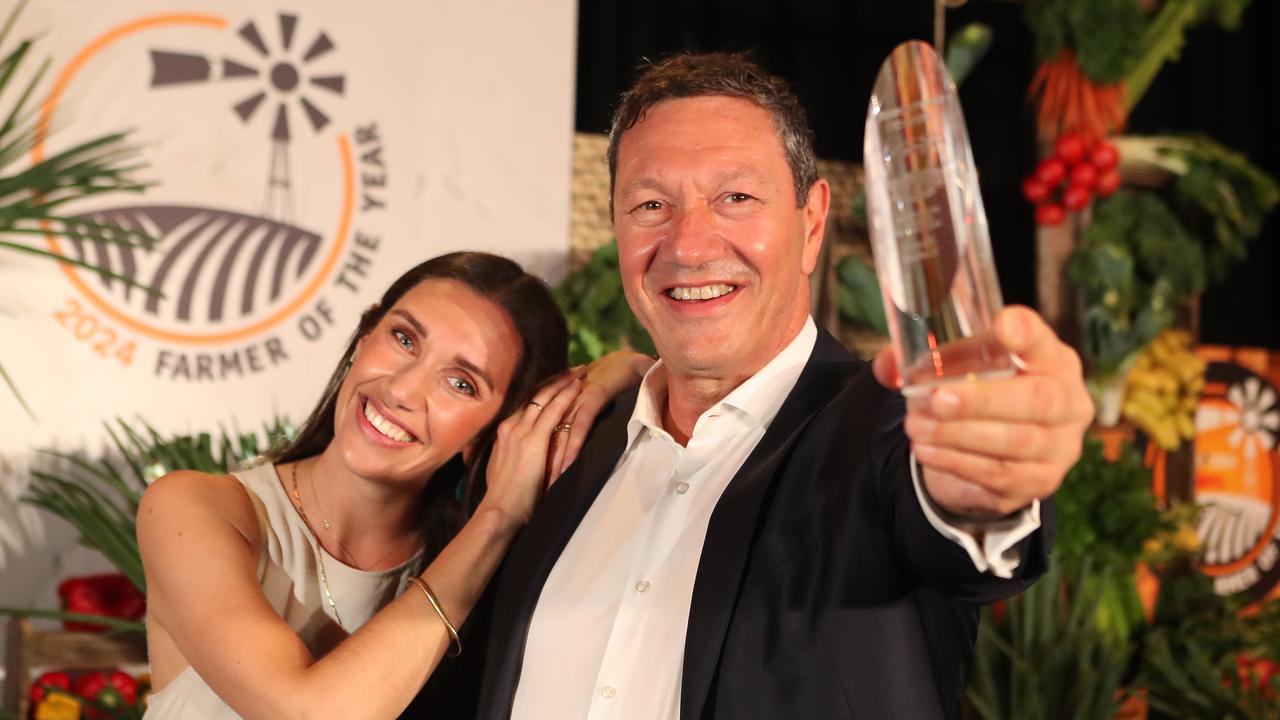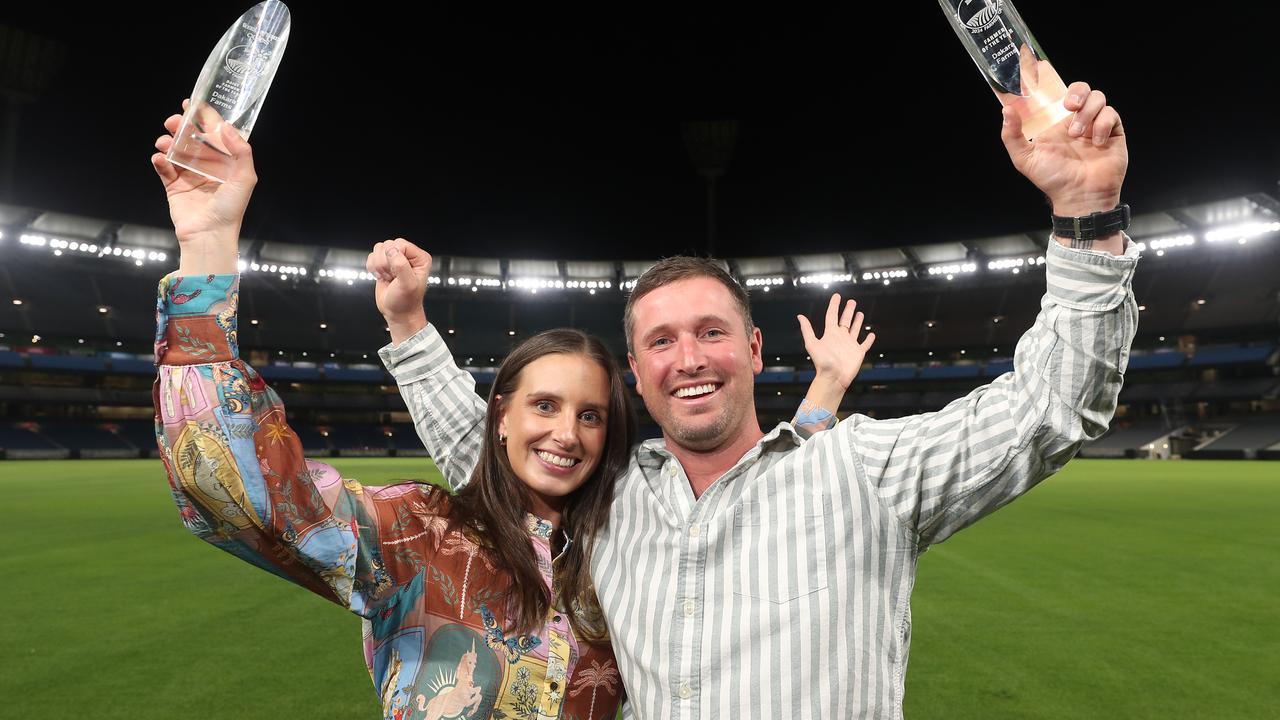Inglenook Dairy a bottler
NAIVETY is the key for one family looking to rescue their farm.

NAIVETY is the key for one family looking to rescue their farm.
Troy Peterken is happy to confess he was blissfully ignorant the day he suggested a way to rescue the family dairy farm.
Yet it was that very ignorance that saved the 400ha property at Dunnstown, on the outskirts of Ballarat, and its 250-head herd.
"We were sitting around in the shed one night and the family were talking about how there was no money in it anymore, " said Troy, married to Rachael, whose family owns the third-generation dairy.
"They were saying how it was getting harder and they didn't know what to do. That it was seven days a week for no reward, that we're the only people who are price takers, not makers.
"So I said 'why don't you bottle it?'."
That was four years ago. While today Inglenook Dairy is a success story - bottling and selling four products of milk and cream, which earns four times the value compared to the farmgate price - their rise has not come easily.
The first two years alone, Troy said, were spent building the processing plant with their own hands.
"We were naive to the fact how much work was involved in building the factory and we were naive about what it would take to run it," Troy said.
"Just things like getting a processing licence from Dairy Safe Victoria.
"We didn't even know what homogenising involved when we first started.
"Naivety is what got us through in the end. If we'd known then what we know now we may not have gone into it."
Rachael agreed, adding that naivety got them through - with the help of Google.
"The whole factory was built on Google. We even Googled homogenisation," she said.
"We did literally everything ourselves. The worst part was digging trenches in the rain.
"It's been an amazing learning curve for us all.
"I walk through it still every day and it amazes me that we pulled it off."
Rachael's grandmother first settled on the farm in the early 1900s.
"She started with six cows and no land and grew it to 20 cows and 20 acres," Rachael said.
Her father, Basil, took over when he was 18 and after he and his wife, Sheila, had five children, passed the reins to son Karl, who now runs the 250-cow dairy, with sister Gina.
Milking twice a day sees a total product of 14,000 litres a week, 60 per cent of which is still sent to Warrnambool Milk and Cheese, with the remainder used in the Inglenook Dairy products.
The herd grazes on a mixed pasture of canola, clover and rye grasses - irrigated on need through a 10-megalitre water entitlement. Feed is also supplemented to ensure the correct proteins and fats in the milk - 3.2 per cent protein and 4g of fat.
"If the protein isn't 3 per cent as a minimum it won't froth the coffee," Rachael said.
Their own milk products are piped to a tanker and driven to Troy and Rachael's neighbouring 4ha property.
"We decided to put the factory on our property for hygiene reasons."
Troy picks up the milk from his in-law's farm in the evening, tests it and stores it before processing in the morning.
Generally the milk will be pasteurised through tubes to 76C, held at that temperature for 15 seconds, before chilled to 3.2C. Some products are homogenised, some run through a separator.
In total their daily production is about 1000 litres of full-cream unhomogenised milk, 3000 litres full-cream homogenised milk, 2500 litres low-fat milk and 200 litres of cream.
All Inglenook Dairy products are free of additives and all sold to cafes, restaurants and retailers around the state.
"There's nothing to extend the shelf life. No fake proteins, no permeate, no thickeners or gelatine in the cream," said Troy, 40, who still works by day as an electrician and described himself as "the son-in-law who bottles their milk".
He said beyond taking part in pasteurising courses and doing work experience at a Queensland processor, one of the most difficult aspects of processing milk was getting a processing licence from Dairy Safe Victoria, which is audited every six months.
The Peterkens have had to cover all bases, from how to handle recalls, to weekly and monthly microbiology lab testing of milk samples, to the hygienic design of the factory.
"We had to ensure the whole building and plumbing is easy to clean, with no possible pooling of liquid on the floor and no difficult to access corners," Troy said.
Rachael said their naivety extended to marketing the product as well.
"We thought once we started everyone would buy the product because it's beautiful. We thought it would be a piece of cake, but it was really hard to get stockists beyond the local area," she said.
"So we had to learn marketing and business development."
Once they had conquered their own naivety, they met their ultimate Goliath: the supermarket cheap milk price wars.
"When that happened we asked ourselves whether we'd keep going or pull out," Troy said.
"I don't know how the hell they do it for those cheap prices. Someone is going broke somewhere.
"But once we got our product out there it sold itself."
Rachael said many customers asked why they should pay more for a product they could get cheaper.
"We told them taste it. It's that simple. Once they do they say it tastes like real milk used to."
Rachael said Inglenook Dairy was still climbing the ladder of success and "had a long way to go", but said the value-adding had saved the farm.
"I know people say whingeing farmers, but dairy farmers work seven days a week with no financial reward," she said.
"If little communities pulled together and built their own factories to supply the town, it would be a way to make dairying sustainable.
"We would be happy to help other people build on this concept because I'm passionate about the sustainability of dairy farming and I'm worried my children will drink milk imported from China."


